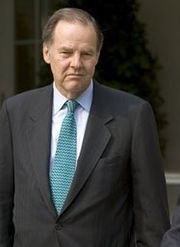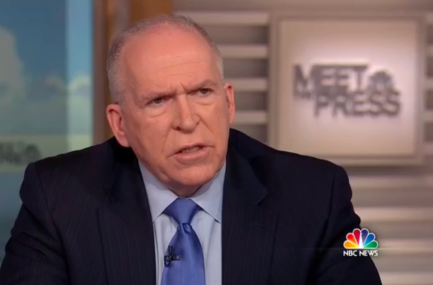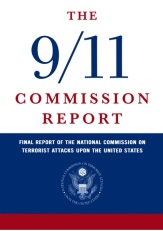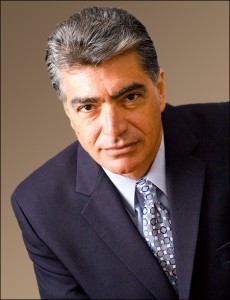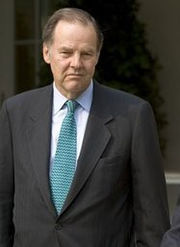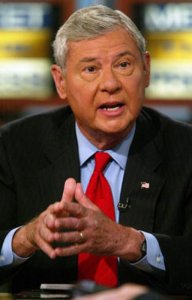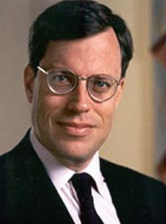28 Pages Declassified—See What Was Hidden
By Brian P. McGlinchey
 Thirteen years after they were classified by the George W. Bush administration, 28 pages that are said to detail specific financial links between the Kingdom of Saudi Arabia and the 9/11 hijackers are set to be released as early as Friday, according to CNN and many other outlets. Here’s what to look for both in the 28 pages and in the ensuing debate about their significance.
Thirteen years after they were classified by the George W. Bush administration, 28 pages that are said to detail specific financial links between the Kingdom of Saudi Arabia and the 9/11 hijackers are set to be released as early as Friday, according to CNN and many other outlets. Here’s what to look for both in the 28 pages and in the ensuing debate about their significance.
Less Than Full Declassification
The 28 pages are part of the report of a 2002 congressional intelligence inquiry that spans more than 800 pages. There are periodic, specific redactions throughout the rest of the report, so it would not be surprising if the 28 pages had a few surviving redactions of their own. The more numerous, however, the greater the chance that important information is still being concealed from the American people—and perhaps the greater the chance that concerned members of Congress will take matters into their own hands and release that information on their own.
Residual Cover for Saudi Arabia
 White House press secretary Josh Earnest today seemed to hint that, in addition to protecting intelligence sources and methods, concern for U.S.-Saudi relations will also shape decisions on how much the public is allowed to see.
White House press secretary Josh Earnest today seemed to hint that, in addition to protecting intelligence sources and methods, concern for U.S.-Saudi relations will also shape decisions on how much the public is allowed to see.
“We want to make sure that we factor in the diplomatic equities into a decision like that. So when that process is completed, we will obviously coordinate not just with the (Director of National Intelligence) but also with the Congress to make sure those diplomatic equities are properly factored in,” said Earnest at the White House press briefing.
False Narratives About 9/11 Investigations
In the months leading up to the release of the pages, U.S. government officials and the chairs of the 9/11 Commission have been waging a public relations campaign aimed at creating doubt about the reliability of what’s in the 28 pages. Expect that effort to resume with renewed intensity as the pages are released.

Detractors have described the 28 pages as unvetted investigatory leads. However, former Senator Bob Graham, who chaired the inquiry that produced the 28 pages, noted that “there’s been no questions raised about the professionalism and quality of the other 820 pages of that report and this chapter followed the same standards that they did.”
Those questioning the value of the 28 pages also point to the fact that they were written before the 9/11 Commission, and declare that the commission thoroughly investigated all the leads in the 28 pages and, quoting the commission report, “found no evidence that the Saudi government as an institution or senior Saudi officials individually funded” the hijackers.
In fact, the idea that the 9/11 Commission thoroughly investigated Saudi links to the hijackers has been thoroughly discredited—though that discrediting has so far failed to permeate major media reporting.
9/11 Commission member John Lehman, in a statement offered in support of 9/11 families suing the kingdom, wrote, “Evidence relating to the plausible involvement of possible Saudi government agents in the September 11th attacks has never been fully pursued.”
That statement from someone who should know is only the beginning. Indeed, the case against the commission’s work regarding the Saudi line of inquiry is so broad and multifaceted that, rather than repeating it here, we urge you to review our April piece, “9/11 Commission Leaders Circle Wagons Around Their Legacy.”
Ulterior Motives

What’s driving the campaign to denigrate the 28 pages? Where 9/11 Commission chairs Tom Keane and Lee Hamilton are concerned, it’s surely about safeguarding their reputations: To the extent the 28 pages cast doubts on the conclusions of the 9/11 Commission—and raise questions about their personal leadership of that effort—the most salient chapter of their professional careers stand to be tarnished.
For the U.S. government and its intelligence agencies, reputations again hang in the balance. At a press conference last week, Rep. Stephen Lynch said, “I think that those individuals (in the intelligence community) don’t want this to come out. They don’t want the facts to come out because it may reveal terrible, terrible errors on their part and they may bear part of the blame” for failing to foil the attacks.
In addition, the very foundation of the U.S. government’s war on terror may be called into question. Saudi Arabia is routinely praised by government officials and Saudi-funded think tanks as an important partner in fighting extremism; revelations that the kingdom may have aided the 9/11 attacks could in turn expose U.S. hypocrisy—particularly when juxtaposing the invasion of Iraq alongside continued arms sales to Saudi Arabia.
Seeming to make that very point, Rep. Rick Nolan, who has read the 28 pages, said, “They confirm that much of the rhetoric preceding the U.S. attack on Iraq was terribly wrong.”
Bogus Reasons for Redactions
If officials announce that some remaining redactions were made to protect individuals who were initially under suspicion but later exonerated, journalists and citizens should push back, because that is not a valid justification for secrecy.

Classification expert Steven Aftergood, who directs the Federation of American Scientists’ Project on Government Secrecy, told 28Pages.org earlier this year, “If you examine the executive order governing the classification system, it does not say that information that is inaccurate or unvetted may be classified. Those words aren’t in there,” said Aftergood.
Driving the point home, Aftergood said, “The 28 pages could be entirely false, malicious and nonsensical. That is not a basis for classification and that should not be an impediment to their declassification.” If persons of interest were subsequently ruled out from aiding the hijackers, the government should release the corresponding documents that led to that conclusion.
Household Names
9/11 Commission member John Lehman was asked by 60 Minutes if the 28 pages name names. He replied, “Yes. The average intelligent watcher of 60 Minutes would recognize them instantly.”
Given very few Saudi officials are household names even among educated viewers, you’d expect Lehman to be referring to someone on the level of, say, former Saudi ambassador to the United States Prince Bandar bin Sultan al Saud.
Outside the 28 pages, it’s already been revealed that cashiers checks found their way from Bandar’s wife to two Saudi citizens in San Diego who furnished heavy financial and other assistance to future 9/11 hijackers Nawaf al-Hazmi and Khalid al-Midhar.
Echoes of Document 17
Last summer, the government silently declassified a 9/11 Commission document that listed dozens of people of interest to investigators who were exploring Saudi links to the hijackers. Written by the same authors as the 28 pages and first revealed by 28Pages.org, “Document 17” had many interesting revelations—most notably, the fact that the FBI found the U.S. pilot license of an al Qaeda associate buried in Pakistan, inside an envelope from the Saudi embassy in Washington.
